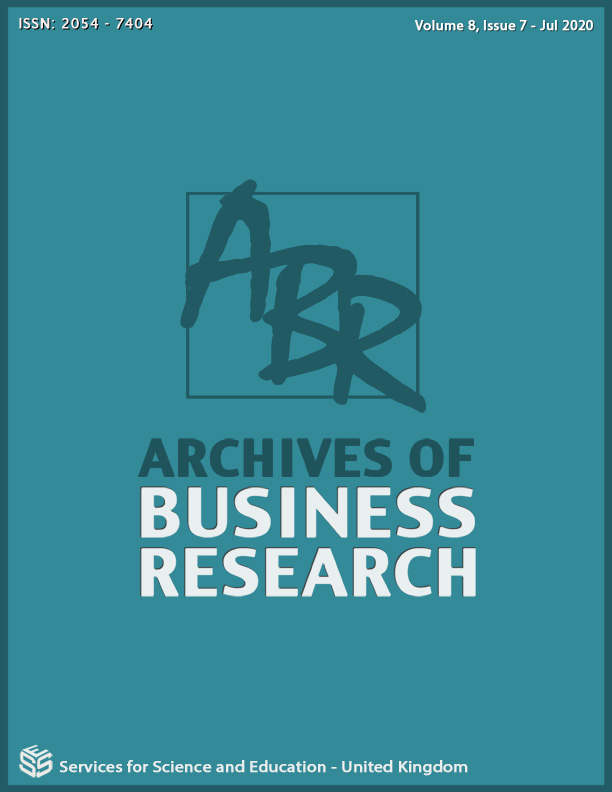On Whether Entrepreneurial Self Efficacy Is A Predictor Of Entrepreneurial Success
DOI:
https://doi.org/10.14738/abr.87.8661Keywords:
Entrepreneurial success, entrepreneurial self efficacy, optimism, overconfidence.Abstract
The objective of this study is to examine the effect of entrepreneurial self efficacy on entrepreneurial success. 9,450 small and medium enterprises (SMEs) who are registered members of the National Association of Small and Medium Enterprises (NASME), National Association of Small Scale Industrialists (NASSI) and Association of Small Business Owners in Nigeria (ASBON) in Lagos State is the sample population. Probability sampling technique, specifically, proportionate stratified random sampling method was used to select samples from the sampling frame. The formula developed by the National Education Association (1960) was used to determine the sample size of 381 was used for this study. Primary data on the dependent variable (Entrepreneurial success) and independent variable (Entrepreneurial orientation) was collected using questionnaire as research instrument. Entrepreneurial self efficacy measures are optimism and overconfidence while measures for entrepreneurial success are profitability, market share, net asset growth, sales growth and government policies. The questionnaire was pretested by a pilot study of 50 selected SMEs. Data obtained from the pilot study was analyzed and based on the result, the questionnaire was slightly modified giving an overall Cronbach’s Alpha value of 0.853. The statistics of the model summary of the correlation co-efficient reveal that: R = .232 showing that the combined influence of the two predictor variables had a moderate positive relationship with entrepreneurial success. The coefficient of determination R square is .054 or 5.4%. This suggests that the combined influence of the predictor variables (optimism and overconfidence) explains 5.4% of the variations in entrepreneurial success of SMEs. The value of F (2,207) = 5.866, p <.05, shows that the combined effect of optimism and overconfidence was statistically significant in explaining changes in entrepreneurial success of SMEs in Lagos State. This is established by a p value of 0.003 which is less than the acceptance critical value of 0.05. The findings of the study reveal that entrepreneurs’ optimism had the highest influence on entrepreneurial success because the p value was 0.040 and then entrepreneurs’ overconfidence with 0.201. These findings may be of help to the owner/managers of SMEs to be more entrepreneurial optimistic in order for them to survive the intensely competitive market environment.






